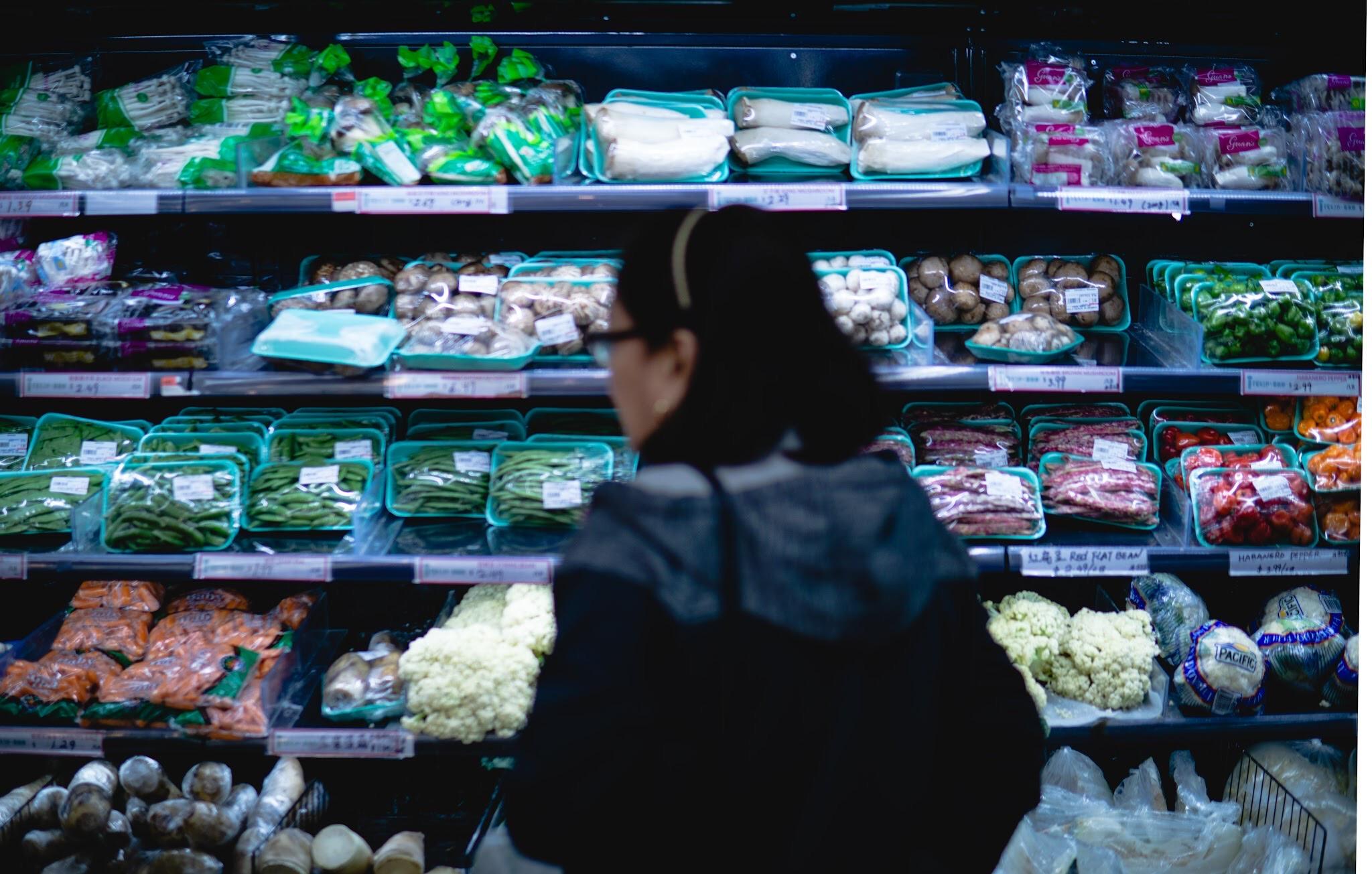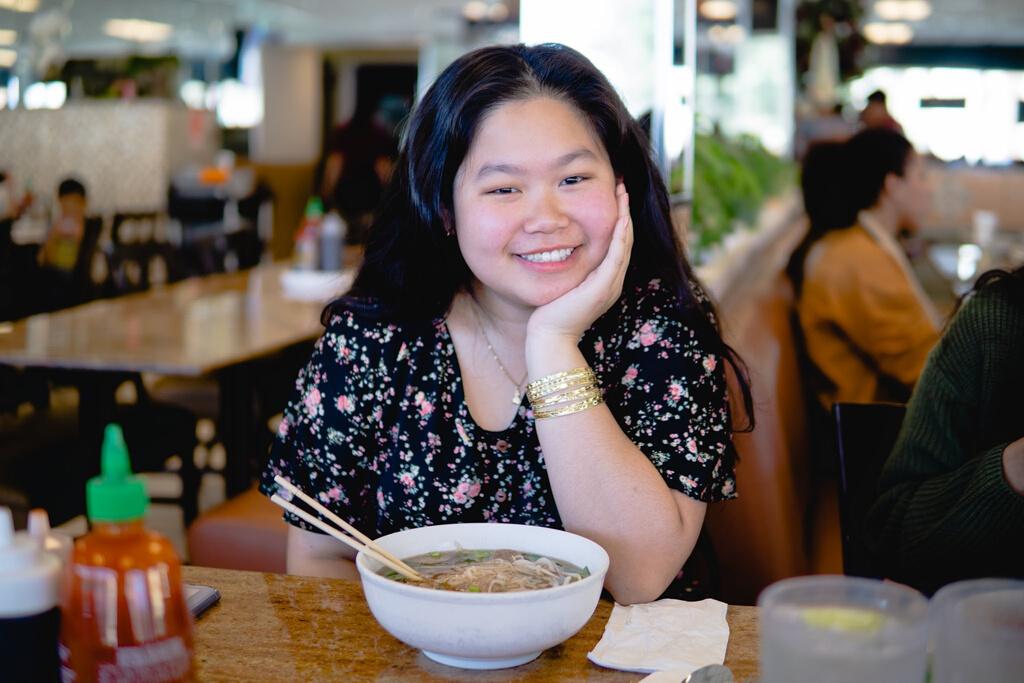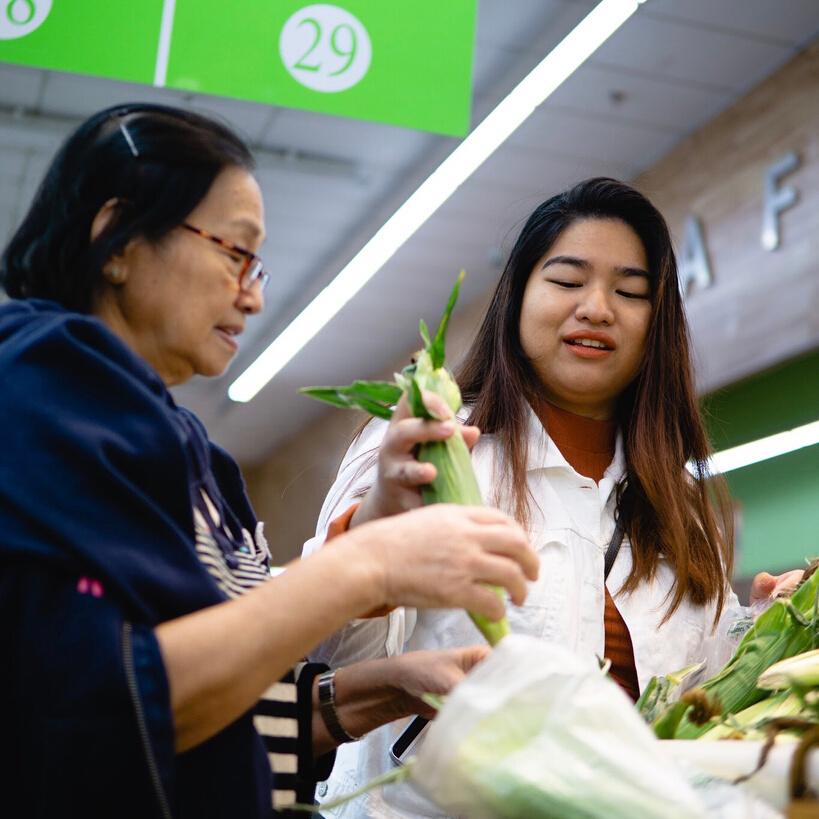
5 minute read
A Love Language for Us
A LOVE LANGUAGE FOR US The Language of Food

Advertisement

There are many ways to express love—buying meaningful gifts, writing lengthy letters, spending time watching a corny movie and so on. Expressing love could even include the dining table being covered with banana leaves, topped with rice at the center and piled high with dried fish, sliced fruit and a variety of other delicious dishes. It easily brings together family and friends in a fun and festive way. For Erika Ronas, a budol fight is the perfect way to celebrate her birthday and to share the love and appreciation she feels towards her family and friends. Ronas, a 19-year-old pre-nursing student at the University of Central Florida, believes that food is a love language. Love languages are, in the simplest terms, ways that we express and experience love. Love doesn’t necessarily mean romantic as it goes beyond romantic relationships, extending into friendships, familial relationships and any other kind of relationship you have with another person. The concept of love languages was originally introduced in a 1992 book, The Five Love Languages, written by Gary Chapman but has since become mainstream knowledge. The five recognized love languages are words of affirmation, acts of service, receiving gifts, quality time, and physical touch.

Food isn’t officially recognized as a love language, but within the Asian community, it might as well be. Food is at the heart of every Asian household and is generally the main focal point of any family gathering. The dishes that our friends and families create are not only packed with flavorful ingredients and an array of spices and seasonings, but also with the care and love they feel towards us. However we experience it, food holds a special place in our hearts and means many different things for many different people.
“[Food] is very important in my family in how we express our traditions and values to each other,” said Ronas. “I kind of translate that with my relationships with my friends and with the people that I’ve met, it’s how I show my appreciation for them. Sometimes I’ll cook randomly for my friends or make a meal with them, it’s just fun to do.”

“To me, it means the time being spent with family and friends; it’s not all about the food, even though food is a part of it,” said Nghi La, a 19-year-old UCF student studying biomedical sciences.
For La and her family, food definitely takes the center stage at major family gatherings and events: “Every New Year’s, we go to my uncle’s house and we have this huge feast. You spend the entire day with all of your family—it’s a really touching way to start the new year.”

Despite the love and care that families and friends feel for each other, a lot of Asian people struggle in finding words to express their emotions. Talking and verbally expressing one’s emotions, whether that be anger, sadness, joy, etc., is often considered to be uncomfortable; even when trying to express “I love you”, the words never really come out the way it’s meant to. This is why many of us, especially our parents and grandparents, turn towards food as an avenue for communication.
According to a professor of psychology at the University of Central Florida, “food is an indirect way to show love. Asian people don’t like to directly express love, whether it be culture or personal shyness. People generally like food, making it an easy way to express that emotion.”
Most of our Asian parents and grandparents find it easier to hand us a plate of food or a bowl of sliced fruit instead of confronting their emotions and voicing it aloud. For them, preparing a home-cooked meal or giving us a decorative bowl of fresh fruit holds so much more meaning than any spoken word they could say. It’s their way of showing their love to us without using any words at all.
Even after arguments, food presents itself to parents and grandparents as a way to express their words. La noticed that her parents often use food as a mode to apologize to her after having an argument. “When they think they’re in the wrong or realize they are wrong,” said La, “they would usually invite you to the dinner table or cut up fruit and bring it to you. They try to break the awkwardness of a post-argument and they show that they still care about you by giving you food. Based on what they cooked, they spent time and their love making it into the food and transcending it and giving it to you.”
The “tough love” that our parents and grandparents show towards us is usually negated with them handing us food. “You kind of scrutinize your kid for a mistake but to make up for it you give them food,” said Ronas.

Across Asian cultures, food has come to represent love—it symbolizes the quality time and appreciation you hold for someone you love and care about. Through this language of food, we created a space for love in our kitchens, where cooking a meal becomes valuable time and cherishable memories. We’ve grown to speak this language of food, the language of dishes that remind us of home and family, because that’s how we’ve come to understand love. Whether that be going out to eat with some friends or cooking a big meal with the family, they’re all ways that we have come to show our love. In its own way, it has become a language we clearly understand, without the need for any words to be said.

ACKNOWLEDGEMENTS ASIAN AMERICAN STUDENT UNION at the University of Florida ASIAN PACIFIC ISLANDER AMERICAN AFFAIRS at the University of Florida University of Florida STUDENT GOVERNMENT










